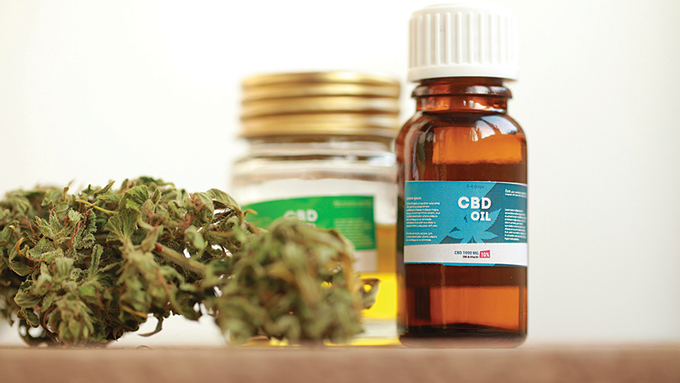Efforts to reclassify marijuana from a Schedule I substance to Schedule III reached a new milestone on Friday, Jan. 12.
In a 252-page document, the Department of Health and Human Services (HHS) detailed scientific evidence, found by the Food and Drug Administration, focusing primarily on potential for abuse and dependence.
The study, which was mandated by President Joe Biden in an executive order late last year, required HHS to reevaluate marijuana’s status as a Schedule I substance by analyzing information presently available on marijuana.
Sixty years ago, the Controlled Substance Act established a rigid classification for the legalities surrounding the distribution and manufacturing of certain substances in the United States, categorizing marijuana as a Schedule I substance, drugs with no medical value and high potential for abuse.
But after much review, the HHS has changed its tune.
“After assessing all available preclinical, clinical and epidemiological data, FDA recommends that marijuana be rescheduled from Schedule I into Schedule III of the CSA. Schedule III drugs are classified as having a potential for abuse less than the drugs or other substances in schedules I and II, a currently accepted medical use in treatment in the United States and moderate or low physical dependence or high psychological dependence that may result from their use,” the review wrote.
HHS also reviewed the withdrawal period from cannabis in comparison to alcohol, writing, “The marijuana withdrawal syndrome appears to be relatively mild compared to the withdrawal syndrome associated with alcohol, which can include more serious symptoms such as agitation, paranoia, seizures and even death.”
Similarly, HHS compared the risks associated with marijuana to drugs like heroin, cocaine and oxycodone by evaluating hospitalizations, unintentional exposures and overdose deaths, writing, “For overdose deaths, marijuana is always in the lowest ranking among comparator drugs. These evaluations demonstrate that there is consistency across databases, across substances, and over time that although abuse of marijuana produces clear evidence of a risk to public health, that risk is relatively lower than that posed by most other comparator drugs.”
While rescheduling cannabis has been a political talking point for the last few months, the recent suggestion from HHS is significant. Despite objections from a handful of politicians, the review conducted by HHS had no bounds to a political affiliation, instead serving as a means to reevaluate what existing information already tells us.
While rescheduling marijuana would not make marijuana federally legal, the changes would be substantial, particularly in terms of medical research, tax codes and the manner in which cannabis businesses conduct banking practices.
Though the final decision lies in the hands of the Drug Enforcement Agency, it seems fair to take stock in how much substantial change cannabis laws have undergone over the years. Even 20 years ago, dispensaries were nonexistent in Arizona, with the idea of medical marijuana remaining as a distant concept.











